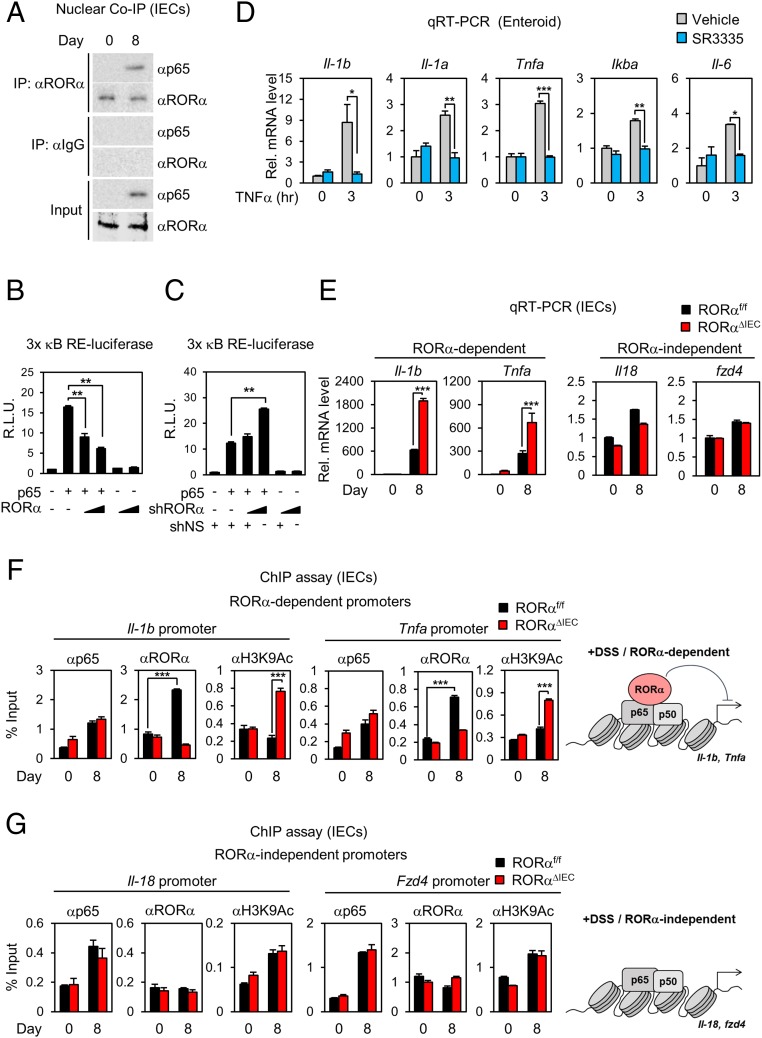Fig. 4.
Recruitment of RORα on the NF-κB target promoters is crucial for the attenuation of intestinal inflammation in DSS-induced colitis. (A) Coimmunoprecipitation (Co-IP) assay of RORα with p65 was conducted in nuclear fractions of IECs from RORαf/f mice after 8 d of 2% DSS (n = 5 per group). The effect of overexpression of RORα (B) and knockdown of RORα (C) on 3× κB RE-luciferase reporter activity is shown. R.L.U., relative luminometer units. (D) Quantitative real-time PCR (qRT-PCR) analyses of NF-κB target genes in organoids from RORαf/f and RORαΔIEC mice treated with TNF-α and SR3335. Rel., relative. (E) qRT-PCR analyses of RORα-dependent and RORα-independent NF-κB target genes (up-regulated genes after 2% DSS) in IECs from RORαf/f and RORαΔIEC mice after 8 d of 2% DSS (n = 4 per group). The mRNA levels were normalized to L32 expression. ChIP assays on RORα-dependent (F) or RORα-independent (G) target promoters in IECs from RORαf/f and RORαΔIEC mice after 8 d of 2% DSS (n = 5 per group) are shown. Schematic model of RORα-dependent and -independent target promoters are shown. **P < 0.01, ***P < 0.001. Statistical analysis was performed using an unpaired t test. Data are from 3 independent experiments (C–G; mean ± SEM).

